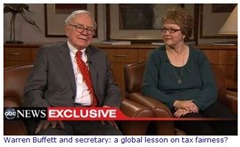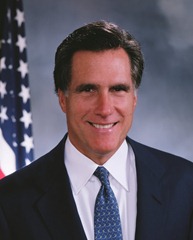Many Politicians Are Two-Faced When It Comes To Tariffs
As I write this, POTUS Donald Trump is pledging to begin tariffs on Mexico for its accused lack of assistance in the immigration crisis on the southern border of the US. Here is a quick news account from Politico:
The White House pledged on Thursday to charge ahead on tariffs on Mexico, saying the U.S. position “has not changed” after officials met for a second day to address the steady flow of Central American migrants trying to enter the United States.
Talks between Mexican and U.S. officials at the White House wrapped up without resolution. Several key officials in the administration were unavailable for negotiations. President Donald Trump was in France for the 75th anniversary of the D-Day invasion, and both Vice President Mike Pence and Secretary of State Mike Pompeo were on the road.
Just about every politician is talking out of both sides of their mouth on this issue. This includes a good portion of the Republicans (especially Mr. Trump) and nearly ever Democrat that I can think of.
To be crystal clear, I despise the use of tariffs against another country. I don’t like taxes in general and using taxes as weapon (i.e. tariffs) is simply a bad practice.
Tariffs are taxes. Plain and simple. They are taxes on corporations that import from the punished country, which in this case is Mexico.
The problem with tariffs and corporate taxes is that corporations never pay taxes. They incur costs. They pass those taxes as costs on to their customers in the form of higher prices for the product. They think of taxes as the same as wages, costs of materials, rent on their buildings, etc. It is a separate line item on their financial sheet, but it is deducted from their income the same way when calculating earnings.
It isn’t the corporation that pays the taxes, it is the consumer. Worse, the tax is regressive in that it is applied to all consumers of the product regardless of their ability to afford to pay or their income. Nearly everyone agrees that regressive taxes that take a larger percentage of poor people’s income than the percentage of wealthy people is unfair. But corporate taxes and tariffs are exactly that – a regressive tax on poor people.
Trump and most Republicans want lower corporate taxes. This, in general, is a good thing because as I said above, corporations don’t pay taxes – they only incur costs that are passed to their consumers. Corporate taxes are an evil and regressive tax against consumers.
So it is illegitimate for Trump and these anti-corporate tax Republicans to support the tariff on Mexico (and probably on China, but China is a different problem).
Democrat readers shouldn’t get too excited about the above paragraph, as they are actually worse.
Most of the leaders of the Democrat party are in favor of raising corporate taxes. This is a terrible stance since, as I stated above, corporate taxes are simply a regressive tax against the poor. The Democrats are supposed to be the party of the poor worker and yet they support regressively taxing those people. That is incredibly evil and insincere. They only do it because it plays well in political speeches. Democrats don’t really want to help poor people, they just want to be re-elected (which is also the goal of Republicans). They are willing to be for a tax that hurts their constituents rather than be truthful and lead those constituents. This is unbelievably cruel and ruthless.
But then Democrats become even more two-faced. Because they hate Trump so much they oppose the Mexican tariff. This is ridiculous if they were ideologically pure since tariffs (while very bad IMO) are simply what most Democrats espouse – higher corporate taxes.
So what does all of that mean?
Unfortunately, it is simple. Both parties are mostly evil and don’t want to help Americans. They are willing to lie and mislead their constituents simply to retain their individual jobs. The only valid option as voters is to THROW THE BUMS OUT! EVERY LAST SITTING FEDERAL POLITICIAN NEEDS TO LOSE THEIR JOB IN THEIR NEXT ELECTION!




